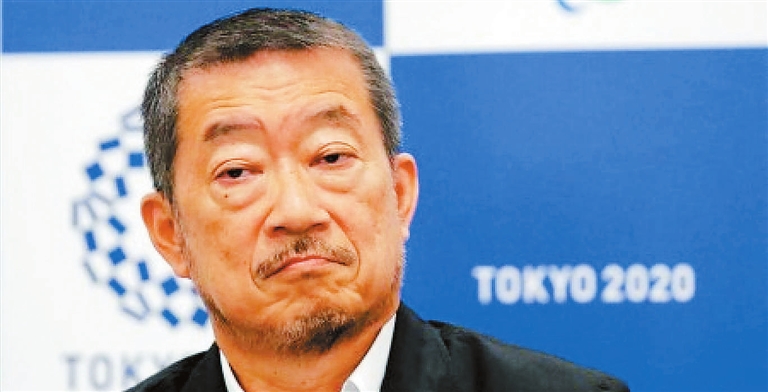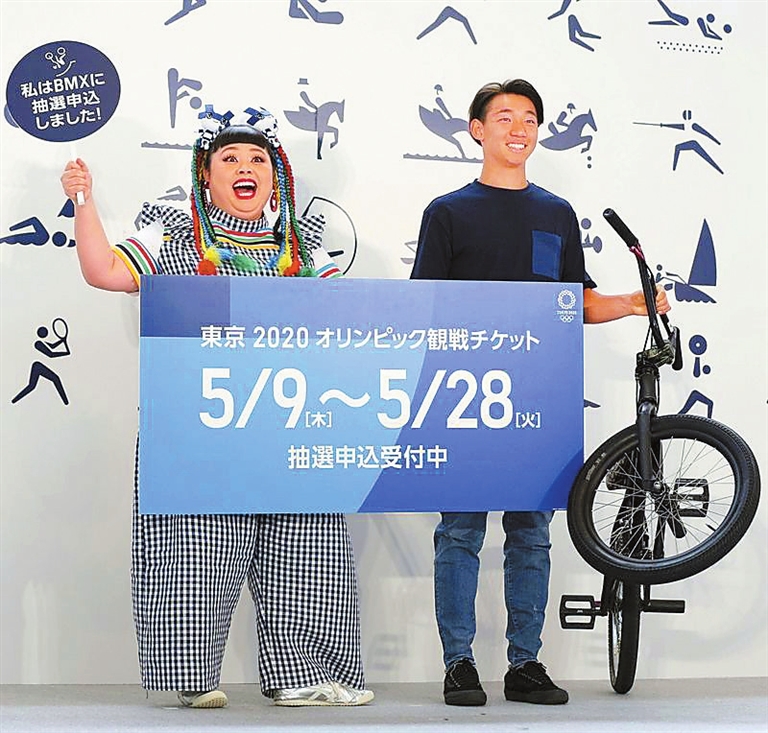

IN yet another setback from the postponed Tokyo Olympics — and another involving comments about women — Hiroshi Sasaki, the Games’ creative director, resigned Thursday after making demeaning comments about a well-known female celebrity in Japan. The Tokyo Olympics are scheduled to open in just over four months, dogged by the coronavirus pandemic, record costs and numerous scandals. And all of this converges as the Olympic torch relay starts next week from northeastern Japan, a risky venture with 10,000 runners set to crisscross Japan for four months, heading to the opening ceremony and trying to avoid spreading COVID-19. Sasaki was in charge of the opening and closing ceremonies for the Olympics, which are to begin July 23. He also designed the Tokyo handover ceremony at the 2016 Olympics in Rio de Janeiro and arranged a one-year-to-go event in July at Tokyo’s new National Stadium. Last year he suggested to planning staff members in online “brainstorming exchanges” that well-known entertainer Naomi Watanabe could perform in the ceremony as an “Olympig.” It was made in a group chat, where his colleagues told him it was inappropriate. Watanabe is a heavy-set young woman, a fashion icon, and very famous in Japan. Sasaki’s “Olympig” reference was an obvious play on the word “Olympic.” The story was first reported by the weekly magazine Shukan Bunshun on Wednesday, and the corresponding controversy took off almost instantly. Watanabe expressed “surprise” by the comments. “In fact, I am happy with this body shape,” Watanabe said in a statement posted on her agency’s website. “But, as a human being, I sincerely hope that the world will become a fun and prosperous place where we can respect and recognize each individual’s individuality and way of thinking.” Sasaki released a statement early Thursday saying he was stepping down. He said he had also called Seiko Hashimoto, the president of the organizing committee, and tendered his resignation. “There was a very inappropriate expression in my ideas and remarks,” Sasaki said in a statement issued through Games organizers early Thursday. “For Ms. Naomi Watanabe, my idea and comments are a big insult. And it is unforgivable,” Sasaki said. “I offer my deepest regrets and apologize from the depth of my heart to her, and those who may have been offended by this.” Tokyo Governor Yuriko Koike called Sasaki’s comments “extremely embarrassing.” “When we are talking about what we deliver from Tokyo, or from Japan, we shouldn’t be sending a negative message,” Koike said Thursday. Hashimoto said at a Thursday news conference that she was “shocked” at the comments and accepted his resignation given that gender equality was a priority for the organization. She said a replacement would come quickly, and also indicated she had tried to persuade Sasaki to stay. “It should have never happened. That’s how I communicated with him,” Hashimoto said, referring to her phone call with Sasaki. “I did feel that way but he explained, and his intention was very strong. That is how I felt. For those reasons I decided to accept his resignation.” Hashimoto also said she talked with IOC member John Coates, who oversees preparations for Tokyo. “The IOC also received the [magazine] article and they were quite concerned,” Hashimoto said. Sasaki formerly worked for the giant Japanese advertising company Dentsu Inc., which has been a key supporter of the Olympics. It is the official marketing partner and has helped to raise a record of US$3.5 billion in local sponsorship, almost three times as much as any previous Olympics. He was named head of the creative team in December as Olympic organizers looked to revamp plans for simplified ceremonies after the Tokyo Games were pushed back a year due to the COVID-19 pandemic. When the International Olympic Committee awarded Japan the games 7 1/2 years ago, Tokyo billed itself as “a safe pair of hands.” It has evolved into anything but that. In February, the president of the organizing committee Yoshiro Mori was forced to resign after making sexist comments, saying women talk too much in meetings. The 83-year-old, a former prime minister, was replaced by athlete-turned-politician Hashimoto who has pledged to make gender equality a top priority at the Games. Two years ago, Tsunekazu Takeda, the head of the Japanese Olympic Committee, was also forced to step down in a bribery scandal connected to vote-buying involving International Olympic Committee members. The Japanese did well with initial planning and organization. But they have been buffeted by the pandemic and seem snake-bitten with the Olympics causing new problems and more expenses almost daily. Support has plummeted with various polls suggesting about 80 percent of Japanese want the Olympics canceled or postponed again. They cite the costs and the risks of holding the mega-event during a pandemic. “The IOC and Japanese politics are male-dominated territories,” Dr. Barbara Holthus, deputy director of the German Institute for Japanese Studies in Tokyo, said. “Japanese politicians have a long history of furthering gender inequalities — besides many other inequalities.” The Olympics are scheduled for July 23-Aug. 8 and the Paralympics from Aug. 24 to Sept. 5. Japan has controlled the virus better than most countries and has attributed about 8,700 deaths to the virus. Organizers and the IOC insist the Olympics will move forward during the pandemic with 11,000 Olympic and 4,400 Paralympic athletes entering Japan. Official costs for Tokyo are US$15.4 billion but several government audits show the real cost might be twice that much. A University of Oxford study says Tokyo is the most expensive Olympics on record. An announcement is expected next week that overseas spectators will be barred. Limits on local spectators are yet to be decided. (SD-Agencies) | 
